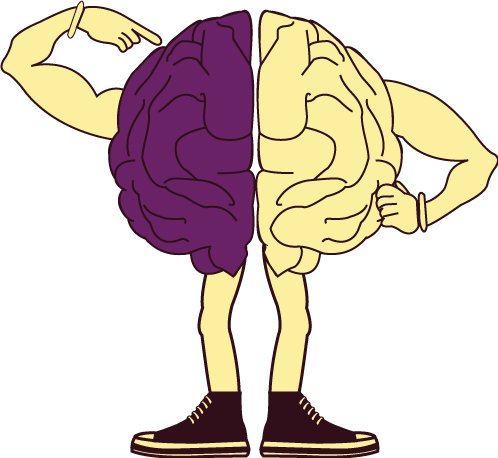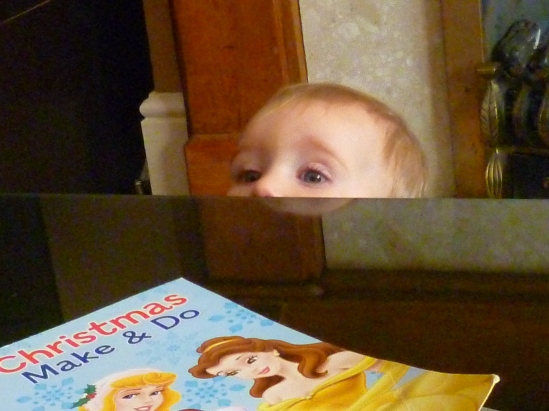
I find in the first two weeks after my stroke that I’m starting to take stock of my pluses and minuses.
After the brain attack there’s my physical and mental fitness:
I’m suffering partial paralyses on the right side. The head (I drool a lot), and the
right side of my face is less animated; the arm; and to lesser sense the feet. I’m working on that with self-regulated
therapy since I fired the Intermediate Care Team because they were insensitive
to me (read Mrs Doubtfire tries to cure my aphasia). They did leave me with
detailed instructions on photocopied sheets on their recommended exercises. Plus,
I commandeered my youngest daughter’s weight set and started reps with those (two
wrist straps with .5 k each and a dumb bell of 2K, whatever that is in Imperial
weights or pounds. K had used them a total of three times in some girlie quest
behind closed doors before rendering them useless in the back her closet).
Then there are other deficiencies and one that bothers me the most: not able to write.
You’ve heard the joke about the one-armed paper hanger…well, imagine a half-brained
writer. It’s more than just a half-brained writer – it’s a writer who has to
teach himself to write again. Start all over again from pre-kindergarten/reception
age, getting a feel for a writing instrument in your hand, and have it go
through all the motions you need to form a letter on the paper. Just one
letter, then you have to start all over again with second letter, then the
third, making a simple word an exercise of Nautilus equipment exertion, and
sentence is a full work-out in the gym. They don’t have that on the suggested
exercises from my Intermediate Care Team (redundant).
It isn’t that I’ve forgotten the movements; I remember them – it’s that the blood clot in the
carotid artery on the left side of my neck during my stroke erased the ability
to reconstruct them, as though I was to start again as a toddler in a
full-grown body learning the physical movements needed to form letters.

Now each letter is formed with the dogged determination of the first time I had to learn
this exercise in communication. I can see it in my mind, but there is a short-circuit
between my brain telling my hand to make a letter, and the physical implementation
of the hand performing the act.
(I am taken back in distant memories to the time in my life growing up when my great-grandmother
Lillian watched me playing with crayons – we were at my grandmother’s house in
Toledo. I remember how the furniture looked, all dark wood with highlights of the white doilies on the arms of the upholstered
sofa and chairs. Sweet image isn’t it?
Watch closely then and see the old crone pick up my hand and slap it because I had picked up the crayon in the left hand –
sinister. She put the crayon in the “right” hand for emphasis and there it stayed for life. It’s so Victorian. It’s a memory I recounted once to my mother when I was in my 30s and she said I couldn’t have possibly remembered that, Iwas only two years old!
I had revenge though on Lillian; my daughter K is left-handed and proud of it.)
Then I had a sudden idea: if the stroke affected the right side my body, why not try writing with my left hand.
Same result – childish scrawling, barely recognisable.
Add to this physical side that I’m tired. It’s as though this stroke took some effort,
when all I remember is sleeping through it. The fatigue is such that I have
been forced to take a nap around noon to make it through the day.
And mental – there’s a problem with my thinking. I know I
said I’m thinking straight, but not 100%. I don’t come up with original ideas,
and those I had before, I can’t add to. I’m thinking now of my novel. Since the
attack on my brain I’ve had a lot of time on my hands, time I would ordinarily use
to refine plot and character and descriptions. Nothing. In fact I can’t
remember words like “anxiety” let alone spell it or write them down. I’ve never been at a loss for words until now.
I try pecking at a keyboard on the laptop and it takes me
seven times to type in my password for email after taking 10 minutes to
remember it.
I mention my multiple deficiencies on the next visit to
speech therapy with Catherine – I tell her I’ve lost my mojo, but my
pronunciation of it took about four times in four minutes.
 One thing I have learned from Catherine (if I remember the
One thing I have learned from Catherine (if I remember the
word) is to break the word up into easily speak-able bits. The trick is that
you have to pronounce little bits correctly as in: Ma-jo, Me-jo, My-JO, MO-JO!
By this time, I’ve verbally staggered around so much, I forget what I’ve lost.
So then begins Catherine’s quest to unlock my need for words. She’s got a synonym sheet. She shows me pictures, like a cow and I have to say the name (Elsie – I interviewed her once) and add some other farm animals.
Then, a picture of a car and go on to name other forms of transport. (I’m good at this!)
Then there are just words: furious. (Let’s see. Furious.
Fury.) Anger!
Tardy: (not on time; behind time) Late!
And on and on until I reach scowl. (Bird, night time. Big eyes.
Harry Potter movies. Admit defeat.)
Not every word comes to mind. But it’s a start and Catherine
suggests I try crosswords and word puzzles for next week and find ways to talk
aloud.
 I would have given me a gold star, such was the effort, but Catherine didn’t offer one.
I would have given me a gold star, such was the effort, but Catherine didn’t offer one.
Wait, you got gold stars when you were young and needed a reward for doing well. Well the effort was elementary in style, but you’re old
now and the only incentive you need is to get your brain back.
And your mojo.












